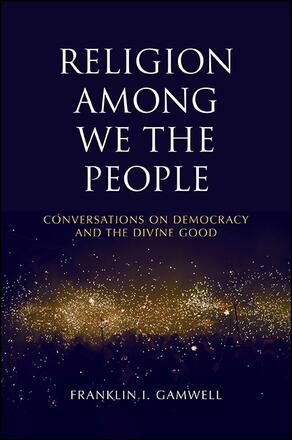
Religion among We the People
Conversations on Democracy and the Divine Good
Alternative formats available from:
Explores democracy with religious freedom and its dependence on theism.
Description
Franklin I. Gamwell holds that democracy with religious freedom is dependent on metaphysical theism. Democratic politics can be neutral to all religious convictions only if its constitution establishes a full and free discourse about the ultimate terms of justice and their application to decisions of the state, and the divine good is the true ground of justice. Notably, Gamwell's view challenges virtually all current accounts of democracy with religious freedom. This uncommon position emerges through a series of essays in which Gamwell engages a variety of conversation partners, including Thomas Jefferson, David Strauss, Abraham Lincoln, Jürgen Habermas, Alfred North Whitehead, Reinhold Niebuhr, and Iris Murdoch. Discussions of Jefferson, Lincoln, and the US Constitution illustrate the promise of neoclassical metaphysics as a context for interpreting US history. Gamwell then defends his metaphysics against both modern refusals of metaphysics and accounts of ultimate reality offered by Niebuhr and Murdoch.
Franklin I. Gamwell is Shailer Mathews Distinguished Service Professor Emeritus of Religious Ethics, Theology, and Philosophy of Religion at the Divinity School of the University of Chicago. His many books include Existence and the Good: Metaphysical Necessity in Morals and Politics and The Meaning of Religious Freedom: Modern Politics and the Democratic Resolution, both also published by SUNY Press.